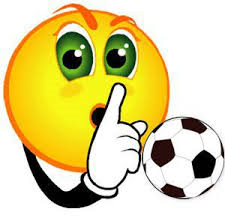Silent Sideline Soccer
All PCSL teams, coaches, families & spectators are asked to participate in “Silent Sideline Soccer” on Saturday, Sept. 16 during all league games.
Silent Saturday is an educational initiative that will help ALL of us involved in youth soccer – players, coaches, referees & parents/spectators. It has been instituted in a number of soccer leagues throughout the country finding a great deal of success.
Its main purpose is to just let the kids play and have fun without having to worry about how their performance is affecting the adults on the sidelines. Kids need to make their own decisions in soccer, right or wrong, to develop as successful players. It helps them think on their feet during a game and not rely on the instructions their parents are yelling from the sidelines (which they usually can’t hear much of anyway!). It gives players a chance to trust their skills and instincts without sideline input, and without concern that their mistakes will be corrected from the sidelines in a game environment. It also fosters leadership skills among the individual players plus a sense of true teamwork as the players must learn to rely upon one another and communicate with each other accordingly. It reminds coaches, parents, and players that PRACTICE is the time for instruction. Games are the showcases for learning and the primary purpose of youth soccer is kids playing, learning and having fun.
Rules for Silent Sideline Soccer
Spectators: You may not make any verbal comments on the game or direct any comments to the players, referees or coaches – on or off the field. Clapping IS allowed!
Coaches: You may not provide any direction – verbal or non-verbal – to players who are on the field. You may speak quietly to any players that are on the bench, but DO NOT give those players instructions to yell out to their teammates! Coaches may address the players at a normal tone before and after the game, during water breaks and during halftime.
Players: You are encouraged to speak to each other on the field. You are free to support each other and provide direction to each other. Players on the bench may cheer freely in a positive manner, but may not provide instruction to those on the field.

